Red Notice ivory-smuggling fugitive who had fled to Mozambique arrested by Guangdong ...
Mozambique: Peasants tell of intense clashes between military and terrorists in the woods
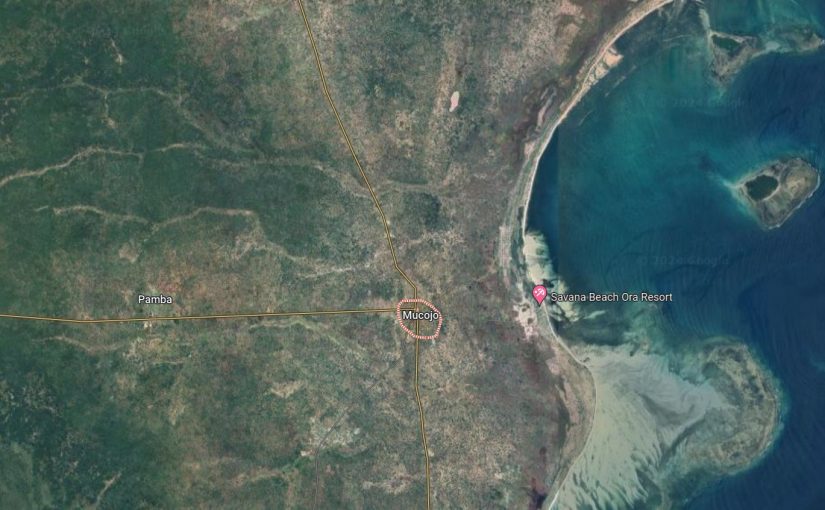
For illustration purposes only. [Image: Google Maps]
Farmers working in the forests of Macomia, in the Mozambican province of Cabo Delgado, told Lusa on Friday of intense clashes involving joint Mozambican and Rwandan forces against terrorists in the forests of Mucojo.
According to the sources, the clashes between the joint military mission and the insurgents have been going on for three days in the forests of the Mucojo administrative post, 40 kilometres from the district headquarters, involving helicopters, armoured vehicles and armed men, with reports of shootings in places considered to be hiding places for these groups.
‘We started hearing it intensively three days ago (…). We got scared because all we heard was shooting,’ reported a source from Macomia.
The source added that these clashes have prompted some peasants to leave out of fear due to the intensity of the bombardments, especially as they are taking place close to the agricultural areas of Namigure and Nambine, where some are carrying out activities such as clearing woodland in preparation for the next agricultural season.
‘How to stay where the fire doesn’t stop, only on the Mucojo road. You only see armoured vehicles, military cars passing by, Rwandan and ours,’ he said.
There are no reports of casualties between the parties, but the peasant population acknowledges the progression of the Mozambican and Rwandan military forces on the ground.
‘It’s been a long time since we’ve seen something like this, the cars are passing by all the time in Mucojo, the armoured vehicles too. If we’re afraid, it’s because it’s war, otherwise someone will die by mistake,’ said the source, who works in an agricultural field in Nambine.
Cabo Delgado has been facing an armed rebellion since October 2017, with attacks claimed by movements associated with the extremist group Islamic State.
The last major attack took place on 10 and 11 May on the district headquarters of Macomia, with around a hundred insurgents sacking the town, causing several deaths and heavy fighting with the Mozambican Defence and Security Forces.
The population of other districts in the province has reported the movement of these groups of insurgents, who cause panic as they pass through the forests. Still, there have been no reports of clashes, which happened when the peasants were trying to carry out harvest work in the fields.
The president of Mozambique, Filipe Nyusi, said on 16 June that the actions of the various defence forces had made it possible to wipe out ‘practically all’ the bases of the terrorist groups operating in Cabo Delgado.
‘The result of this combination of forces is surprising. They managed to disable the terrorists from all the towns and villages that had been occupied, destroyed practically all the enemy’s fixed bases, making them nomadic, and put many violent extremists out of action, including some of their main leaders,’ said Nyusi, in Mueda, Cabo Delgado province.
The head of state acknowledged the efforts of the Armed Defence Forces of Mozambique, together with the Rwandan military, the mission of southern African countries – which concluded its total withdrawal on July 4 – and the Local Force, made up of former fighters in the national liberation struggle, in combating these groups over the last six years.
‘They’re out there in the bush, but they no longer stay in one place because they’re afraid of being found,’ he said, renewing his appeal to the population “to continue to step up their vigilance”


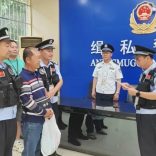
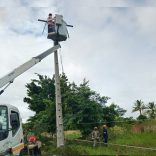

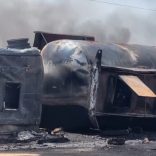
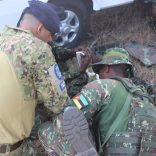





Leave a Reply
Be the First to Comment!
You must be logged in to post a comment.
You must be logged in to post a comment.